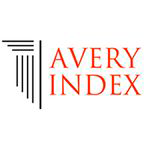The Architecture of Defying Gravity
A Radical Exploration of Future Environments that Focuses on the Poetics, Innovation, and Potential of Airborne Architecture
Abstract
The evolution of architecture is a narrative of humanity's enduring aspiration to transcend the constraints of physical and environmental limitations. In the 21st century, this timeless pursuit has been reimagined through the innovative paradigm of Airborne Architecture, epitomized through the research of Gravity Defiant Architecture (GDA). This article delves into the origins, foundational principles, and transformative potential of GDA, with particular emphasis on the Rising Oases Saga—an ambitious project that exemplifies the poetic and revolutionary possibilities of architecture that defies gravity. By integrating a thorough literature review, in-depth case studies, and rigorous theoretical analysis, this article positions GDA within the broader continuum of architectural evolution, exploring its implications for sustainability, resilience, and ethical design. Ultimately, it proposes a radical vision of architecture that not only redefines the built environment but also fosters a profound harmony with the natural world.
Keywords: Future Environments, Gravity Defiant, Airborne Architecture, Sustainable Futurism
Downloads

Downloads
Published
How to Cite
Issue
Section
License
Copyright (c) 2024 Georges Kachaamy

This work is licensed under a Creative Commons Attribution 4.0 International License.
The authors keep their rights upon their work, although they transfer, in a non-exclusive way, the rights of exploitation (reproduction, publication, distribution, public dissemination and presentation) to the Journal. The authors are, therefore, free to enter additional, separate contracts for the non-exclusive distribution of the version of the work published in the Journal (for instance, by hosting in an institutional repository or publication in a book), provided credit is given that the work was initially published in this journal. The works are published under a Creative Commons Attribution 4.0 (CC BY 4.0) license.











